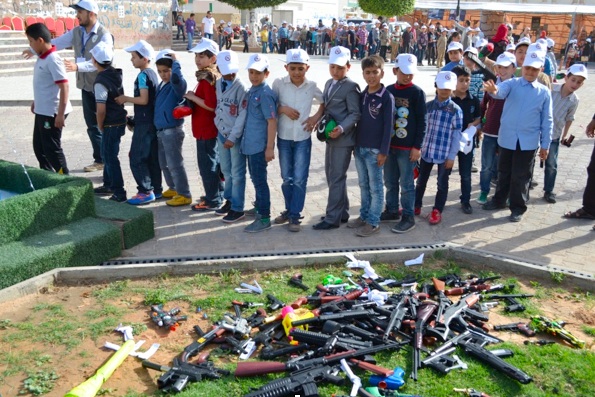Tripoli, 4 April 2013:
An official awareness camapign to promote public understanding about the country’s constitutional process is being organised by . . .[restrict]a coalition of civil society organisations under the leadership of the ‘Organisation for Justice and Peace’.
On Wednesday, at a workshop in Tripoli prior to the campaign’s launch, a number of prominent speakers looked at the challenges for the process and the role that civil society can play. “All agreed on the key role civil society organisations have to play in the process,” said a statement from the European Union’s office in Tripoli which supported the workshop.
Speakers including Mohammed Zubia, head of the Board of the National Civil Society Support Centres, and Nuri Elabbar, head of the High National Election Commission. They underlined the need for a consensual process so that the Libyan people could feel properly represented in the process. Participants also stressed the need to hear the voices of minority groups and the role of women in the process.
At the workshop Suzanne Kodsi, head of Operations at the EU Delegation to Libya, spoke of the EU’s on-going support to the Libyan people and particularly welcomed the dialogue between Civil Society organisations and the authorities.
“The EU recognises the important role which civil society has to play in supporting Libya’s young democracy,” the EU statement read. “The planned campaign represents an opportunity to continue promoting the active engagement of citizens from all over Libya in the constitutional dialogue with the different political stakeholders”.
The mechanism for the selection of members of the commission which will draft the constitution committee still has to be decided. Congress had voted that it should be through national elections but a new vote is now required following a Supreme Court ruling in February.
This is not the first constitution awareness-raising campaign. In January, the Forum for Democratic Libya (FDL), launched a national dialogue initiative to consult Libyan citizens on issues relating to the new constitution. FDL is supported by the United Nations Development Programme [/restrict]








